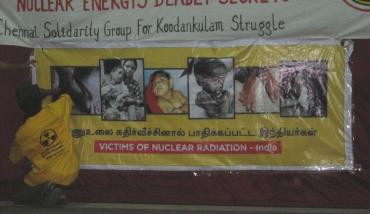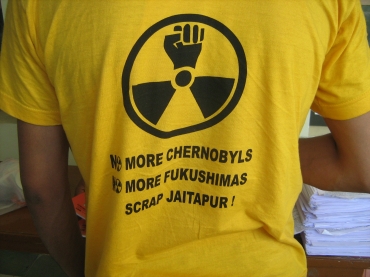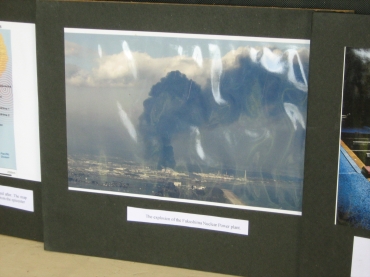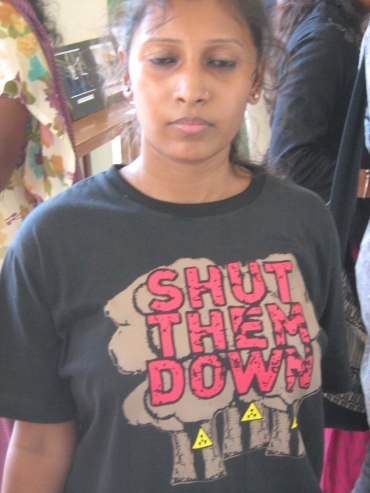
Protestors are evoking memories of Hiroshima and Nagasaki, the Chernobyl accident and the recent Fukushima tsunami to warn people about the Koodankulam nuclear plant, reports A Ganesh Nadar
Loyola College, Chennai, is considered to be one of the best educational institutes in India.
On Sunday, the college witnessed a spirited protest by its students against the nuclear plant in Koodankulam in Tamil Nadu.
The protestors held banners and photographs to support their argument. They also urged people to register their protest. T-shirts being sold by them boldly declared 'shut them down' -- the slogan was clearly aimed against the plants at Koodankulam and Jaitapur.

The students also screened documentaries about protests against mining in a village called Kalane in the Konkan region of Maharashtra. Other documentaries portrayed the devastation wrought by the bombing of Hiroshima and Nagasaki and the Chernobyl accident in the erstwhile USSR.
The students had already planned a protest on Monday opposite General Hospital near Chennai central railway station.
The protestors handed out a particularly interesting notice that was promoting a book written by Tamil nationalist and former Congress leader P Nedumaran. The book was about late Liberation Tigers of Tamil Eelam chief V Prabhakaran.
The other side of the notice contained a poem in Tamil against the nuclear plant.

The first speaker at the event was Neeraj Jain, who argued that India now produced 4,780 MW of nuclear energy, which fulfilled only 2.6 per cent of our total demand. India had aimed to multiply the production by a hundred times after the nuclear deal with the United States was signed.
The government never tells the people how much nuclear energy costs, said Jain. The Department of Atomic Energy is not accountable to the people, to Parliament and didn't fall under the purview of RTI, he said.
"So we neither know the radiation levels in our nuclear plants nor do we know anything about the regular accidents that happen there," Jain claimed.
He underlined that production of nuclear energy had three major problems: Radiation, accidents and disposal of nuclear waste.
Jain claimed that radiation took place even when uranium is mined and when it is used to make fuel rods and in reactors.

"Radiation damages genes in cells. It leads to mutation which lead to deformation in children," he said.
According to him, radiation could cause cancer of lungs, bones and even leukaemia. High dosages of it could lead to premature aging and death.
"Radioactive elements emitted during radiation leaks can last for thousands of years. Even the smallest dose can cause cancer," he warned the packed auditorium.
Such dire warnings, coupled with images of the ravaged nuclear plant in Japan's Fukushima, can make one apprehensive about the perils of nuclear energy.